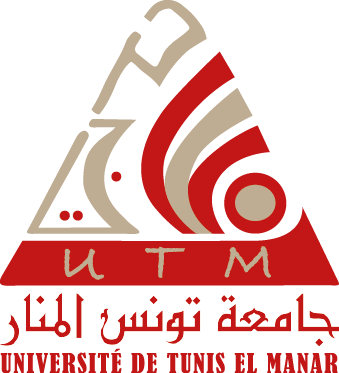Yosr Hamdi, post-doctorante au laboratoire de génomique biomédicale et oncogénétique a obtenu le prix de la meilleure communication orale lors du 10th conference de l'"African Society of human genetics" qui a eu lieu du 15-18 Novembre 2017 au Caire.
Voici le résumé de la présentation intitulée Unraveling The Etiology Of Breast Cancer In North Africa.
Authors : Hamdi Y, Ben Rekaya M., Boujemaa M., Mighri N., Labidi S., Mejri N., Ben Nasr S., Jeidane O., Mezghani B, Elbenna H., Romdhane L., Meddeb R, Jingxuan S. , Haddaoui A., M'rad R., Chouchane L. , Rahal K., Boussen H., Abdelhak S.
Background: Breast cancer (BC) is the most common malignancy in women. In Western countries, the mortality attributable to BC has fallen by approximately 30%over the past 25 years. However, high mortality rates are still observed in low income countries where the majority of women are diagnosed at late stages. To date, about 50% of BC familial risk in Caucasians is explained by known genetic variations. However, breast cancer genetic component in developping countries is still not defined.
Main goals: We aim to identify the epidemiological, genetic and epigenetic risk factors of BC in Tunisia in order to establish protocols to personalize the treatment and improve oncogenetic counselling.
Experiments and methods: We screened 11patients using Whole-Exome-Sequencing (WES) and we performed a genome-wide study on 135Tunisian subjects in order to conduct haplotype analysis and to investigate the genetic loci known to be associated with BC.
Results: Using WES, we identified 3families with a double-heterozygous BRCA2 deleterious mutations. This double-heterozygosity is a rare genetic phenomenon that seems to be associated with a distinctive clinical phenotype. In addition, we showed that Tunisian-population is more predisposed to at risk haplotypes on 4q21, 6q25,9q31, 10q26,11q13 and 14q32 loci. We also identified four polymorphisms specific to the Tunisian-population, including a variant on ESR1.
Conclusion: By combining our results with existing data in the literature, it is now possible to refine the genetic component of BC in North-Africa which will provide an accurate genetic diagnosis and a better clinical management of the disease. Keywords: Breast cancer, NGS, haplotypes.
Félicitations!




